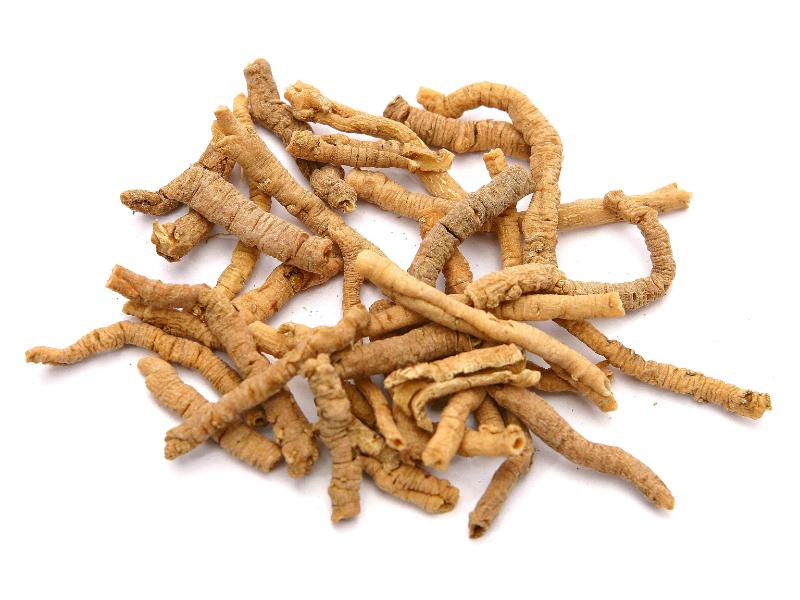Search in medicinals
Polygalae Radix
Polygala [root]
远志 〔遠志〕 yuǎn zhì

Alternate English names: Chinese senega
Alternate Chinese names: 苦远志 kǔ yuǎn zhì; 志通 zhì tōng; 远志肉 yuǎn zhì ròu; 远志筒 yuǎn zhì tǒng; 刺菀 cì wǎn; 苦远志 kǔ yuǎn zhì
Kingdom: Plant
Origin in PRC Pharmacopoeia: Polygala tenuifolia Willd.; Polygala sibirica L. (PRC Pharmacopoeia)
Origin in unofficial sources: Polygala tenuifolia Willd.; Polygala sibirica L.
Use: Medicinal
Category: Spirit-quieting agents / Heart-nourishing spirit-quieting agents
Properties: Bitter, acrid; slightly warm.
Channel entry: Heart, kidney, and lung channels.
Actions and indications:
- Quiets the spirit and sharpens the mind: Insomnia, profuse dreaming, fright palpitations or fearful throbbing, and forgetfulness.
- Transforms phlegm and opens the orifices: Cough with copious phlegm, and phlegm turbidity blocking the orifices of the heart, which possibly manifests in mania and withdrawal or epilepsy.
- Disperses welling-abscesses and swelling: Toxin swelling of welling- and flat-abscesses, painful swollen breasts.
Dosage and method: Oral: 3–9g in decoctions; steep in liquor; use in pills and powders.
Warnings: Yuǎn zhì is warm and dry, so it should be used with care in cases of repletion fire and phlegm-fire. It can cause nausea and vomiting (it irritates the gastric mucosa). It should be used with care in patients with gastritis or peptic ulcers.
Product description: This product is a cylindrical root, up to 10 cm in length, and 3–6 mm in thickness. The exterior surface is light brown, and rough in texture, bearing the scars of removed branch roots. It has deep transverse creases. The skin is thick, and easily removed from the wood. Roots whose wooden core been pulled out are called tube polygala
(远志筒 yuǎn zhì tǒng); those that have been beaten to remove the wood are called polygala flesh
(远志肉 yuǎn zhì ròu); those that are too fine to have the wood removed are called polygala sticks
(远志棍 yuǎn zhì gùn) or polygala bones
(远志骨 yuǎn zhì gǔ). The decocting pieces are either 2.5 cm lengths or slices 0.5–1 cm thick.
Quality: The best quality roots are thick and soft with a thin, pale skin. The produce of Shanxi and Shaanxi is generally held to be superior.
Production area: Shānxī, Shǎnxī (Shaanxi), Jílín, Hénán, and Héběi.
Etymology: In the name yuǎn zhì 远志, yuǎn 远 means far,
and zhì 志 means will
or mind,
the combination of the two characters reflecting the effect this agent has on the spirit-mind,
i.e., power of consciousness and mental faculties.